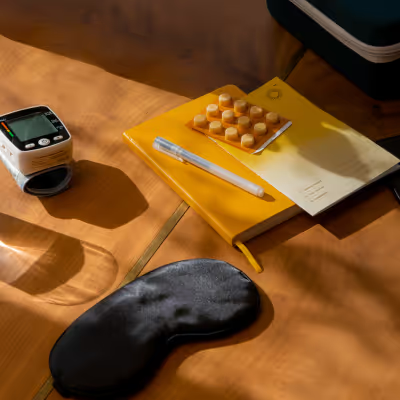Become a Mindbloom Affiliate
Learn about Mindbloom’s affiliate program and evidence based treatment model for treating anxiety and depression.

What affiliates get

The opportunity to bring Mindbloom to your audience

A dedicated account manager to help you craft your campaigns

Pre-approved copy and marketing materials
Measurable results
The largest-ever clinical study of ketamine therapy was recently published using data from 1,247 Mindbloom’s clients1.
Relief From Symptoms
of Mindbloom clients reported improvement in their depression and anxiety symptoms after 4 sessions
Relief From Suicidal Thoughts
of participants who reported suicidal ideation no longer reported any suicidal ideation after 4 sessions
Little to No Side Effects
of clients reported no side effects from their ketamine treatment with Mindbloom.
Symptom Remission is Possible
of clients experiencing depression and anxiety achieved remission (or virtually no symptoms) after 4 sessions.
Exceptional outcomes
When compared to studies of traditional treatments and IV ketamine, at-home ketamine therapy produced a greater improvement in symptoms.
Real Mindbloom clients,
real stories
FAQ
How is safety monitoring done during Mindbloom’s ketamine assisted therapy program?
All clients must complete a comprehensive safety and screening process. If deemed eligible, clients meet directly with a licensed clinician to ensure Mindbloom and ketamine treatment are suitable for them. If approved, they are assigned a dedicated Guide for their program, and given a specific prescription/dosing protocol for their sessions. Before client sessions, the Guide and our programming help prepare the individual's mind and body. A Bloombox of essential material is also sent to clients to check their heart rate, blood pressure, and provide a safe and supportive experience. Throughout the program, a client can contact their Guide or their Clinician with any questions, and are required to have a Peer Treatment Monitor in the space with them for every dosing session they have.
Is Ketamine FDA approved?
Yes. Ketamine is FDA approved for certain medical uses, and is listed as a Schedule III compound by the DEA. Ketamine is primarily used as an anesthetic in medical settings, and is approved by the FDA as an off-label prescription treatment for depression, anxiety, chronic pain, PTSD, OCD, and substance dependencies at a clinician's discretion. Ketamine has been used in medical settings since the 1950’s, and remains on the World Health Organization’s List of Essential Medicines.
Is Ketamine addictive?
Ketamine has the potential for addiction and abuse when not following clinical protocols. It is a Schedule III controlled substance in the United States, recognizing that it has a moderate to low potential for physical and psychological dependence. Any use of ketamine that is not under the direction of an appropriate clinician can be considered misuse. This misuse can take the form of consuming ketamine without the direction of an appropriate clinician, using more ketamine than prescribed, or using ketamine more often than prescribed. When misused, ketamine can be addictive.
How long do the results last?
A single dosing session is followed by a 10-14 day ‘neuroplastic window’. Neurobiological outcomes such as increased neuroplasticity, heightened BDNF (brain-derived neurotrophic factor) levels and elevated baseline mood are seen during this ~2 week period. Ketamine treatment also helps to create favorable conditions for deeper emotional/psychological work, the positive results of which can help transform an individual for years to come.
How much do Mindbloom's new and continued programs cost?
Our 6-session Basics program for new clients costs $1,158. Clients who wish to repurchase Mindbloom have a few options. Our 6-session, standalone programs are $765 each, and our 18-session All Access program is $1,782. Clients referred to Mindbloom from partner providers receive 10% off the listed prices.
For clients prescribed Mindbloom by Partners, the cost for the Partner is $890 for the first 6 sessions, and $590 for subsequent packs of 6 sessions. Partners may set their own list price for the client.





.avif)

.avif)
.avif)

.avif)

.avif)
